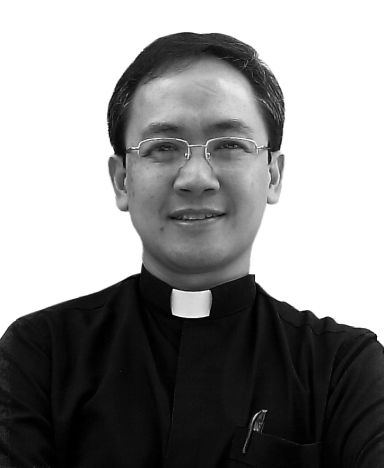
Ongkingco
Beauty will save the world!” These words popped out of my head when I read the daily headline announcing another Miss Universe! I pondered what this event and similar ones achieve after proclaiming another winner. Every year, it’s simply another contestant who outshines the previous one who will be hopefully remembered for her beauty that once was.
Undoubtedly, each contestant is a proud representative of her country and culture. It is after they are judged to embody a harmony of physical, intellectual and a host of other qualities (which I am not well versed about), that they become international icons and ambassadors of all sorts.
With titles associated with Universe, World and Earth, it is perhaps intended that the winner becomes a bright rainbow of hope. A beacon of beauty that can somehow banish the ugly shadows and deforming coldness plaguing our planet in grotesque forms of inequality, injustice, ethnic and religious persecution, and other abuses against the natural rights of every woman and man.
Sadly, beauty contests have their limits. And it is unlikely that any contestant’s beauty can ever save our world.
“Beauty will save the world,” originates from Prince Myshkin, the main character of Dostoevsky’s novel “The Idiot.” What exactly did the Russian author mean by this? And exactly, many would ask, what kind of beauty would possess such power to save the world from its present ailments?
Perhaps, no one can help us better understand Dostoevsky’s ideas than another Russian, and mystic philosopher at that: Vladimir Soloviev.
[WARNING: NOSEBLEED AHEAD! YOU MAY SKIP THE NEXT FIVE PARAGRAPHS!]
In his “The Heart of Reality,” Soloviev describes how his compatriot’s writing is powerfully influenced by his being a religious person, a thinker and an artist.
Soloviev explains that Dostoevsky’s deepest convictions are composed of a unity of three inseparable realities: truth, goodness and beauty. He says:
“The good, taken separately from truth and beauty, is only an indistinct feeling, a powerless upwelling; truth taken abstractly is an empty word; and beauty without truth and the good is an idol. For Dostoevsky, these were three inseparable forms of one absolute Idea.”
But where in the [our] world can we encounter what Soloviev describes as “the greatest good, the highest truth and the most perfect beauty”? Surely, not in a beauty pageant contest.
He says it is found in the “infinity of the human soul” revealed to us in Christ who took upon Himself human nature. The Incarnation of our Lord raised our nature of being “capable of cradling into itself all the boundlessness of divinity. It [the soul] is at one and the same time both the greatest good, the highest truth and the most perfect beauty,” Soloviev concludes.
The Incarnation of the Word reveals who man is to man. In Christ, we discover our nature’s true end and perfection. Jesus is now the model and pattern for our whole life. By identifying ourselves with Jesus Christ, we find the highest meaning of our existence and of the most fruitful perfection of all the gifts given by God through Christ.
Thus, one way of interpreting Dostoevsky’s words, in his Prince, is that the Person of Christ will save the world! This is carried out by the mystery of the Incarnation through which God restored man’s original beauty marred by sin.
Moreover, Christ as perfect God and perfect man reveals and offers a dynamic reality for man. It is a salvific invitation constantly inviting man to freely base his identity through, with and in Christ.
It is only by orienting his entire existence on this adventurous path of identification with Christ, with the guidance of the Holy Spirit, that man — every man and woman striving to become like Christ where they are — is saved.
And when each man and woman, with God’s grace, struggle to become Christ, St. Paul’s joyful exclamation comes alive: “It is no longer I who live but Christ who lives in me!” It is through these other Christs, that is, Christians in and by the beauty of their Christian identity and self-giving, that Christ Himself will save the world.
“The beauty of Christian life is even more effective than art and imagery in the communication of the Gospel message. … The lives of the saints and martyrs demonstrate a singular beauty which fascinates and attracts, because a Christian life lived in fullness speaks without words. We need men and women whose lives are eloquent, and who know how to proclaim the Gospel with clarity and courage, with transparency of action, and with the joyful passion of charity.” (Pope Emeritus Benedict XVI, after screening the movie “Art and Faith – Via Pulchritudinis” 25-X-2012)